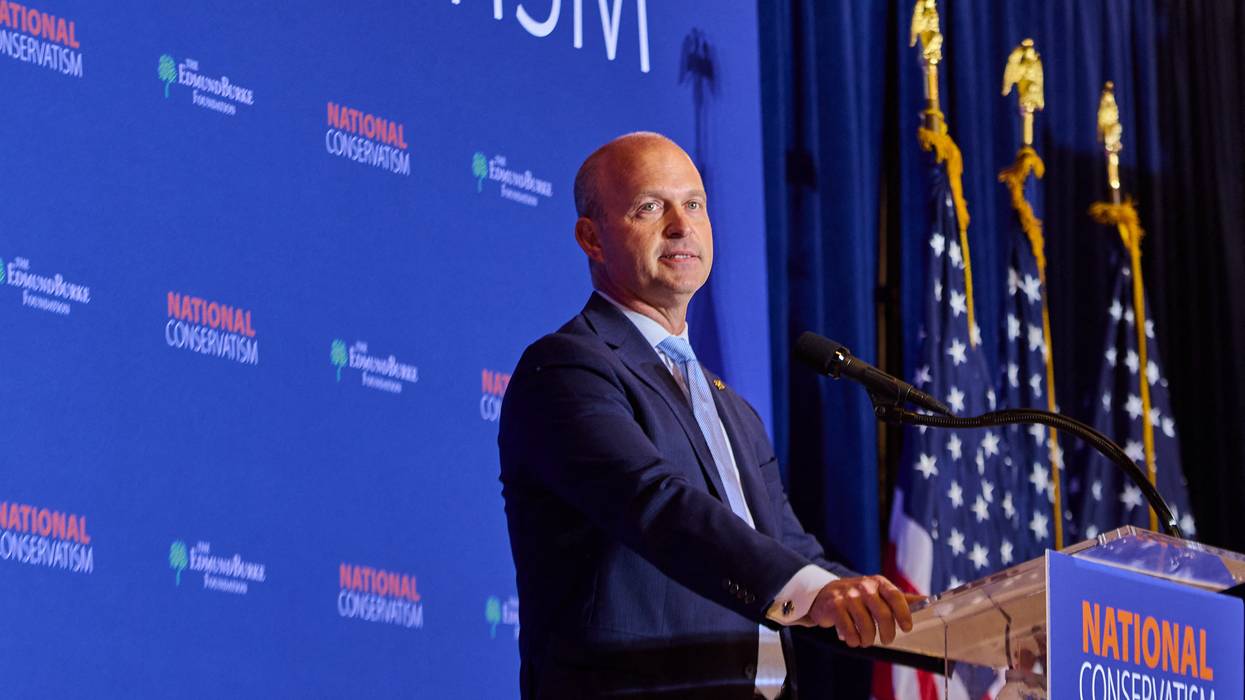UN Expert Calls for 'Defossilization' of World Economy, Criminal Penalties for Big Oil Climate Disinformation
Fossil fuel companies have for decades "instilled doubt about the need to act on, and the viability of, renewables," said U.N. climate expert Elisa Morgera.
As health officials across Europe issued warnings Monday about extreme heat that could stretch into the middle of the week in several countries—the kind of dangerous conditions that meteorologists have consistently said are likely to grow more frequent due to human-caused climate change—a top United Nations climate expert told the international body in Geneva that the "defossilization" of all the world's economies is needed.
Elisa Morgera, the U.N. special rapporteur on climate change, presented her recent report on "the imperative of defossilizing our economies," with a focus on the wealthy countries that are projected to increase their extraction and use of fossil fuels despite the fact that "there is no scientific doubt that fossil fuels... are the main cause of climate change."
"Despite overwhelming evidence of the interlinked, intergenerational, severe, and widespread human rights impacts of the fossil fuel life cycle," said Morgera, "these countries have and are still accruing enormous profits from fossil fuels, and are still not taking decisive action."
World leaders must recognize the phase-out of fossil fuels "as the single most impactful health contribution" they could make, she argued.
Morgera named the U.S., U.K., Australia, and Canada as wealthy nations where governments are still handing out billions of dollars in subsidies to fossil fuel companies each year—direct payments, tax breaks, and other financial support whose elimination could reduce worldwide fossil fuel emissions by 10% by 2030, according to the report.
"These countries are responsible for not having prevented the widespread human rights harm arising from climate change and other planetary crises we are facing—biodiversity loss, plastic pollution, and economic inequalities—caused by fossil fuels extraction, use, and waste," said Morgera.
She also pointed to the need to "defossilize knowledge" by holding accountable the companies that have spent decades denying their own scientists' knowledge that continuing to extract oil, coal, and gas would heat the planet and cause catastrophic sea-level rise, hurricanes, flooding, and dangerous extreme heat, among other weather disasters.
Defossilizing information systems, said Morgera, would mean protecting "human rights in the formation of public opinion and democratic debate from undue commercial influence" and correcting decades of "information distortions" that have arisen from the public's ongoing exposure to climate disinformation at the hands of fossil fuel giants, the corporate media, and climate-denying politicians.
Morgera said states should prohibit all fossil fuel industry lobbying, which companies like ExxonMobil and Chevron spent more than $153 million last year in the U.S. alone—with spending increasing each year since 2020, according to OpenSecrets.
"More recent research has documented climate obstruction—intentional delaying efforts, including through media ownership and influence, waged against efforts for effective climate action aligned with the current scientific consensus," wrote Morgera. "Fossil fuel companies' lobbyists have increased their influence in public policy spaces internationally... and at the national level, to limit regulations and enforcement. They have instilled doubt about the need to act on, and the viability of, renewables, and have promoted speculative or ineffective solutions that present additional lock-in risks and higher costs."
While a transition to a renewable energy-based economy has been portrayed by the fossil fuel industry and its supporters in government as "radical," such a transition "is now cheaper and safer for our economics and a healthier option for our societies," Morgera told The Guardian on Monday.
"The transition can also lead to significant savings of taxpayer money that is currently going into responding to climate change impacts, saving health costs, and also recouping lost tax revenue from fossil fuel companies," she said. "This could be the single most impactful health contribution we could ever make. The transition seems radical and unrealistic because fossil fuel companies have been so good at making it seem so."
In addition to lobbying bans, said Morgera, governments around the world must ban fossil fuel advertising and criminalize "misinformation and misrepresentation (greenwashing) by the fossil fuel industry" as well as media and advertising firms that have amplified the industry's disinformation and misinformation.
Several countries have taken steps toward meeting Morgera's far-reaching demands, with The Hague in the Netherlands introducing a municipal ordinance in 2023 banning fossil fuel ads, the Australian Green Party backing such a ban, and Western Australia implementing one.
The fossil fuel industry's "playbook of climate obstruction"—from lobbying at national policymaking summits like the annual U.N. Climate Change Conference to downplaying human rights impacts like destructive storms and emphasizing the role of fossil fuels in "economic growth"—has "undermined the protection of all human rights that are negatively impacted by climate change for over six decades," said Morgera.
Morgera pointed to three ways in which states' obligations under international humanitarian laws underpin the need for a fossil fuel phaseout by 2030:
- The survival of states that contributed minimally to climate change is impaired by loss of territory to sea-level rise and/or protracted unsafe climatic conditions;
- People are substantially deprived of their means of subsistence because of the severe deterioration of entire ecosystems due to climate change due to flooding, drought, and extreme heat; and
- The cultural survival of the populations of small island developing states, Indigenous peoples, people of African descent, peasants and small-scale fishers is impaired by loss of territories, protracted unsafe climatic conditions and/or severe ecosystem degradation.
Morgera's report was presented as more than a third of Tuvaluans applied for a visa to move to Australia under a new climate deal between the two countries, as the Pacific island is one of the most vulnerable places on Earth to rising sea levels and severe storms.
Morgera said that fossil fuel industry's impact on the human rights of people across the Global South—who have contributed little to the worsening of the climate emergency—"compels urgent defossilization of our whole economies, as part of a just, effective, and transformative transition."


